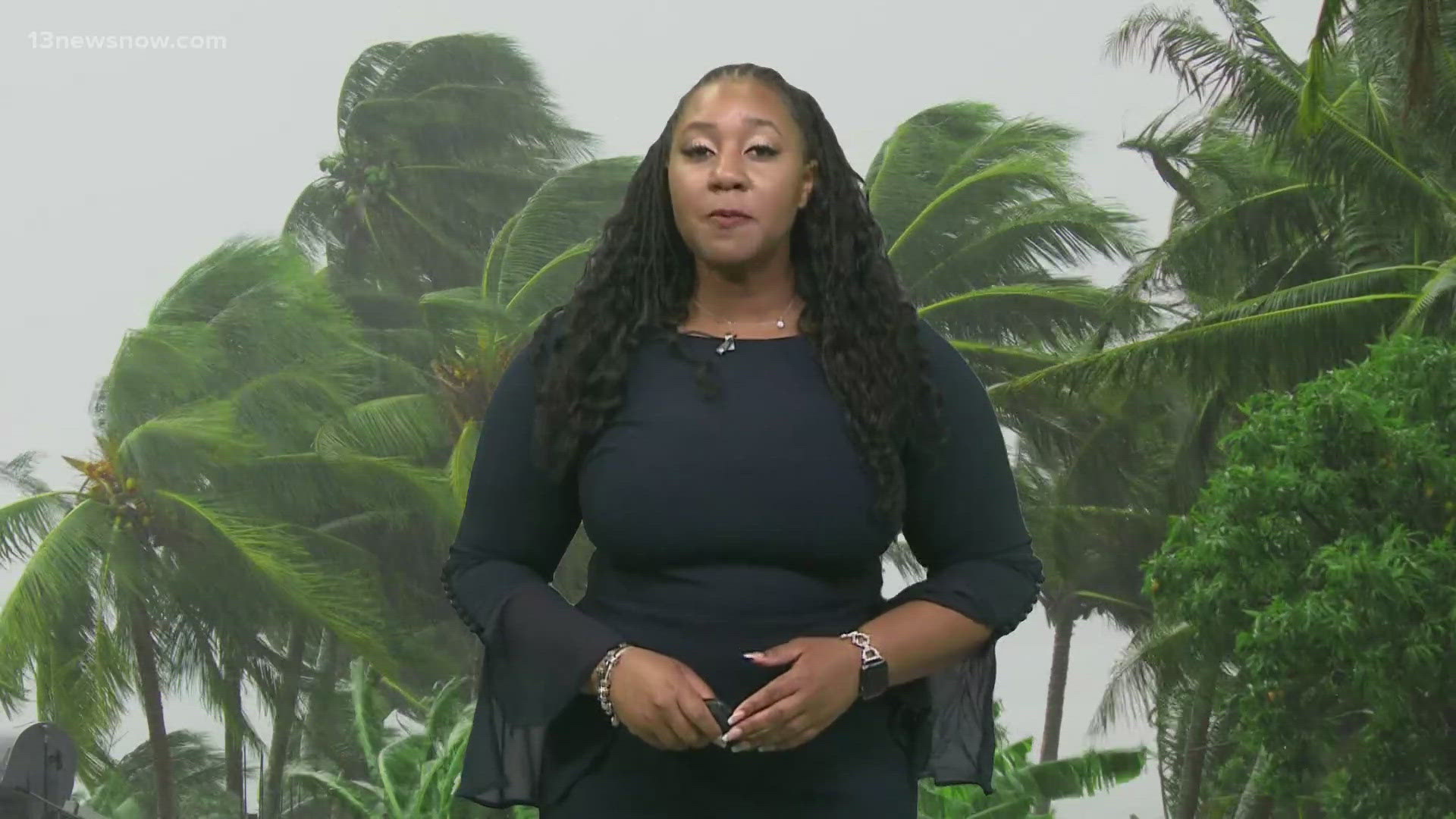NORFOLK, Va. — From August through October, we experience the majority of the Atlantic Basin’s tropical activity. Nearly 68 percent of the strongest storms form in September alone. These large and powerful storms can temporarily change the sea surface temperatures.
Tropical systems are fueled by the warm sea and ocean waters, but if the storm is powerful enough, it can kick up cold water from the deep ocean. The system then leaves behind a trail of cooler sea surface temperatures in its wake.
In the meteorology world, we call this process “upwelling.” This means that any system that tries to form in those cooler waters will struggle more to intensify. That’s one good thing about upwelling.
Another great thing upwelling provides is nutrient-rich water. Fishermen tend to stay around areas where frequent upwelling occurs because those nutrient-rich waters draw in more fish.
Hurricane Helene tore through the Gulf of Mexico in September 2024 and sparked major upwelling. In a visible satellite loop captured by the Cooperative Institute for Research in the Atmosphere, the waters near Florida's west coast became a much brighter blue after Helene rolled through. That brighter blue water was the cooler, sediment and nutrient-filled water churned up from the deep ocean.
There is a downside to upwelling though. Some marine animals live in shallow waters near coastlines and produce their offspring in those areas. Upwelling can cause their youth or larvae to drift well away from the shallow waters out to sea. According to the National Oceanic and Atmospheric Administration, this can decrease the baby animals' chances of survival since they've been pushed from their natural habitats.
That’s how your weather works!

